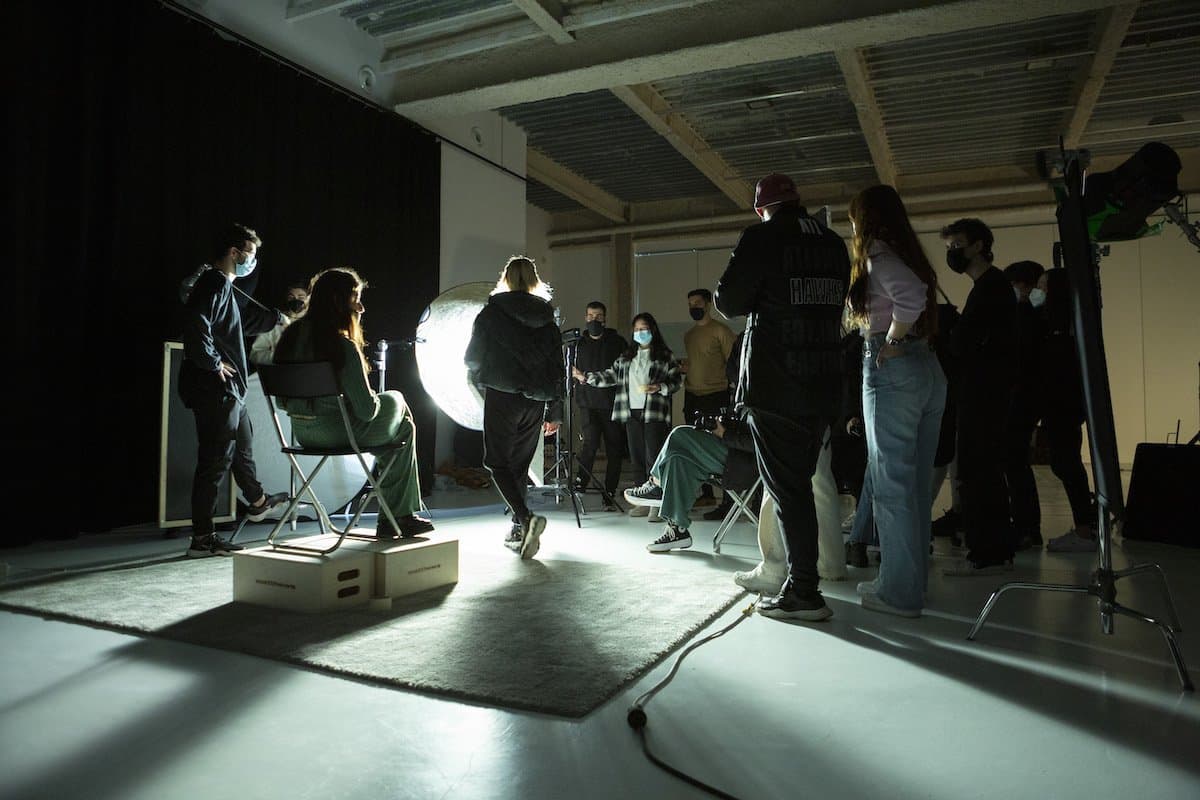
A Learning Journey: Studying at FX ANIMATION Barcelona 3D & Film School
Santiago Cabrera gives us the Inside scoop on studying VFX at FX ANIMATION Barcelona 3D & Film School

Santiago Cabrera gives us the Inside scoop on studying VFX at FX ANIMATION Barcelona 3D & Film School
Whether you’re already at school, looking to find a new school or even considering moving overseas to study, nothing beats hearing from the students themselves! We speak to Santiago Cabrera about the ins and outs of studying at FX ANIMATION Barcelona 3D & Film School.
 Discover | The RookiesAndrew McDonald
Discover | The RookiesAndrew McDonald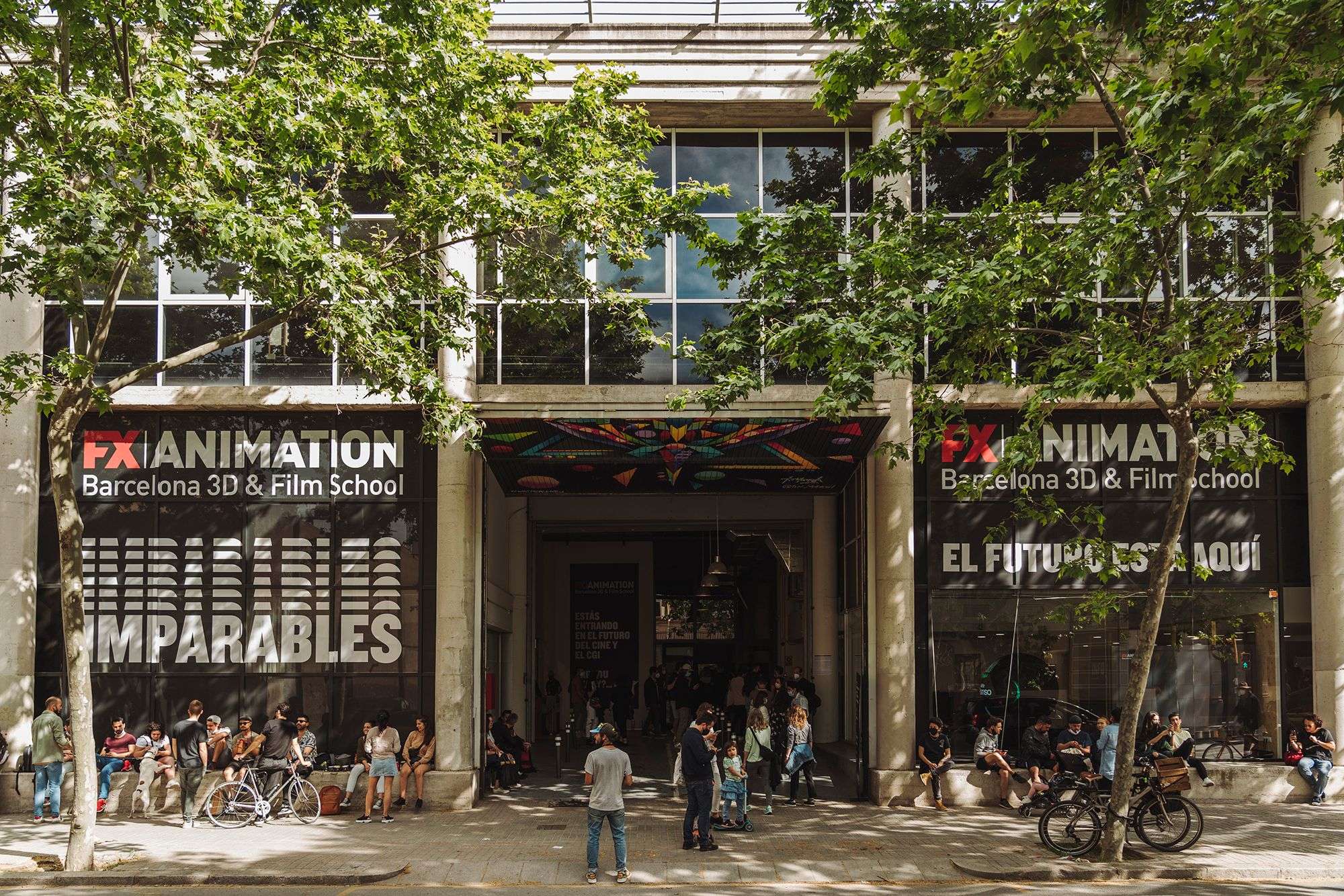
FX Animation Barcelona 3D & Film School, but friends just call it “FX”.
It’s in Poble nou, Catalan for “new town”, an artsy neighbourhood of Barcelona.
The L4 subway is just one block away, a little further is the L1 from which you can go to Plaça Catalunya or Espanya and from there you can go anywhere on the city. Really convenient!
Exactly three years; I started my studies in 2019.
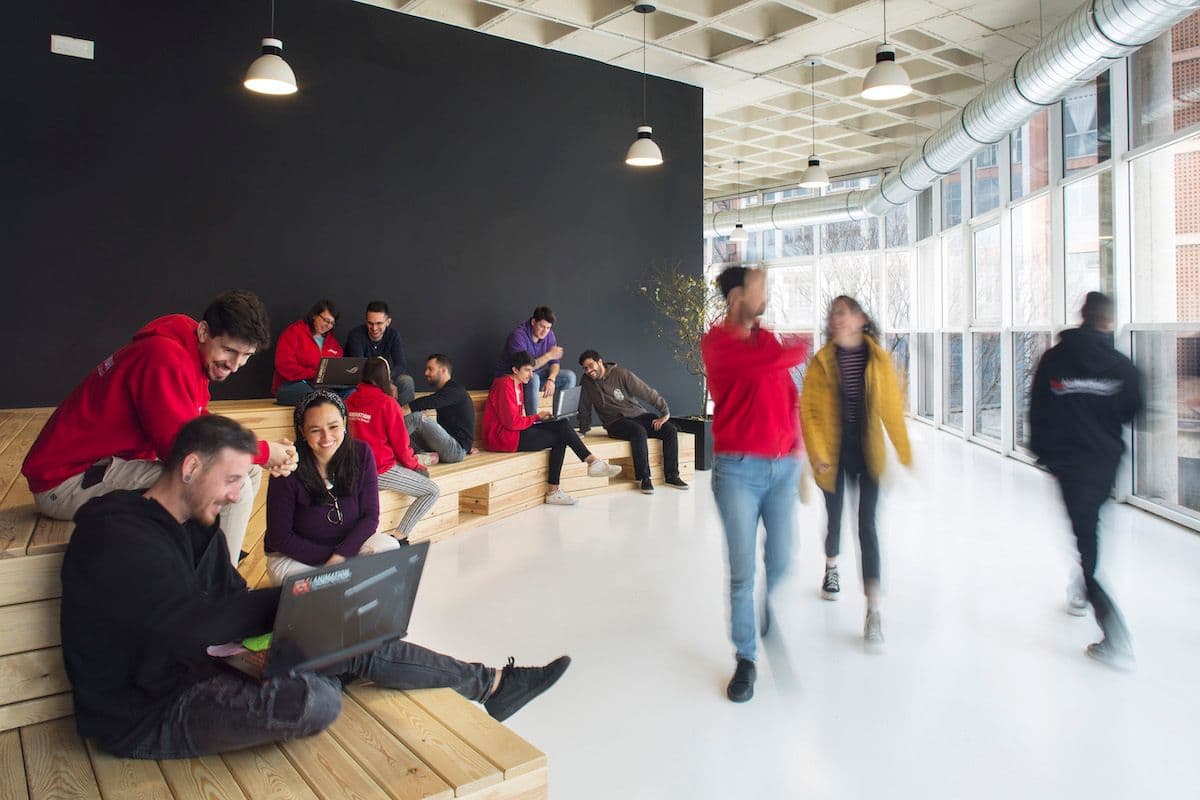
After a year studying cinematography, I realised my passion was for creating digital content, being the computer nerd that I am, I loved creating motion graphics, designs and little animations. So, I naturally gravitated towards wanting to learn high end VFX, the perfect combination of artistic and technical design.
Since I’m from Paraguay and there aren't any VFX schools around here, I had to look in foreign countries to follow this career path. That’s when I found FX Animation; the VFX career had an impressive course program with a certification in Houdini, my dream software to learn. Soon after I contacted the school, talked with some former students and applied for their scholarship program.
The morning I got the acceptance email for the scholarship was probably one of the happiest in my life. I packed everything and went to a different continent to start my dream career!
It’s known for being an artsy neighbourhood with iconic architecture and a lot of amazing places to eat tapas. You can see art exhibitions and design conferences at the Museu del Disseny de Barcelona, eat on the best restaurants by the Rambla del Poble Nou, or just chill on the Bogatell beach and play volleyball with strangers! (The best activity in the whole city).
Other places you can visit are the Mercat dels Encants flea market, a cool place to buy or just see lots of vintage stuff. And of course, the iconic Torre Glòries, that really tall building you see in every google photo of Barcelona.
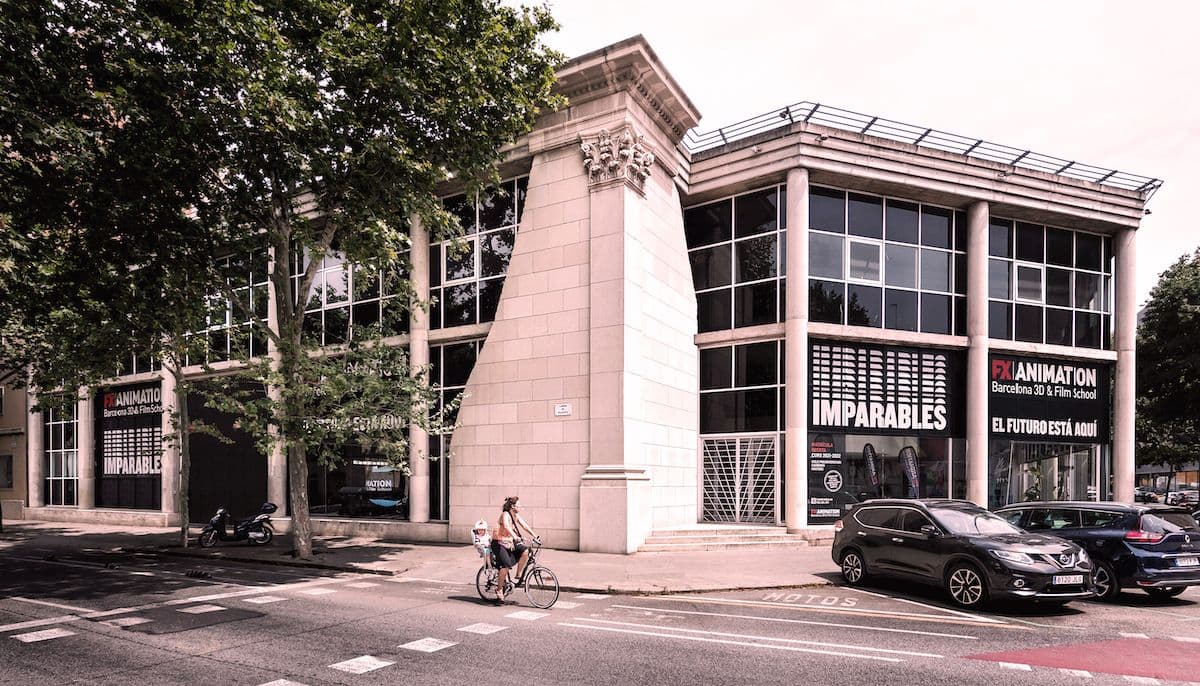
There’s also lots of design schools and studios, so if you like all of that, you’re going to be immersed into the community really fast.
White paint all over the place.
I don’t know if this is the new look the school is going for, but every wall is just TOO white since we moved into our new building; everything is just so bright outside of the classes. Makes you want to paint a giant graffiti on every wall.
A common sight in the study room is people putting their jackets on top of them and their screens just to block that white light bounce to clearly see what they’re working on.
If you see someone with a massive backpack it’s probably an FX student, that’s where we take our notebook and mandatory industrial fan to keep it cool.
The school has an e-sports team that mainly plays League of Legends. I don’t really play that game so I don’t know much, but from what I’ve heard they do really well.
There’s also the FX Family events, a club for people that aren’t from the city and want to meet other students while doing some fun activities, like jumping, biking or anything the city offers.
The core community is small; most of the time people are just minding their own business and never really interacting with other classes. But if you want to partake in the school activities you’ll quickly get to know some really amazing people who love helping fellow artists. These artists are the core of the community and the nicest students around, but you got to look for them.
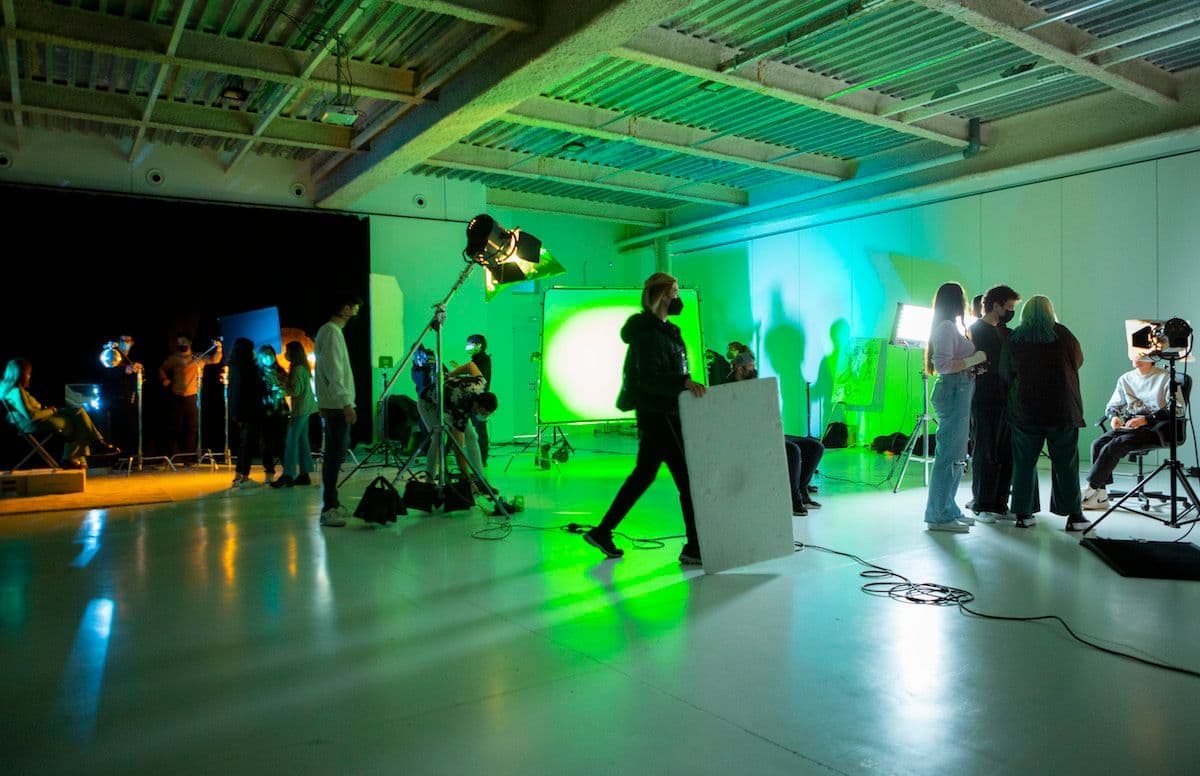
There’s the myth of the -1 floor, a closed-up floor no one knows what’s inside. I have a theory that’s where the secret render farm that the director doesn’t want you to know is.
The most common after class activity is going to the L’ovella Negra pub bar, it’s in the neighbourhood and it's crowded with students from every school nearby. After that if people are feeling spicy, we can go to the nearby night club Razzmatazz to dance and listen to some of the concerts there.
If it’s just to eat there’s lots of places you can go, but with my classmates we regularly frequent the Mexican food place Tierra Burritos.
There’s also group trips that happen once per year, usually to some studio to understand the workflow or a CG event with a lot of conferences, such as the Mundos digitales event. During those trips we have our massive nights outs and get to have fun with most of the students from the school!
Taberna Gallega, best meal menu for 5.50 in the whole city, you can’t miss the pork and cheese sandwich.
I was walking down the halls one day and saw one class that was empty except for one student playing Minecraft on the projector, I did the same after that.
The way topics are taught, giving the student the power to choose and plan their own projects is the finest way to learn CG, because you are forced to investigate, learn and problem solve the specific things you need to finish your projects, and problem solving is the best skill you can develop as a VFX artist.
Having more cross department projects.
Generally, you only do individual projects, there are some class exercises where we use assets done by animation, but we never really do them directly with other students, and I understand that it’s your personal portfolio that will get you the job, but the VFX industry is a collaborative one too! And the school has classes for the whole CG pipeline, so there’s so much potential for making awesome group projects between students.
I’ll buy the beefiest render farm known to mankind and give free access to every struggling student held back by their machine.
But in all seriousness, the first thing would be a library filled with art books and computer graphics theory, a place where you can stay before or after class to deepen your knowledge on technicalities or art fundamentals, or just appreciate the beauty of concept art books (I love those).
From all the projects and challenges I’ve faced, the best thing I’ve learned is to problem solve my own technical problems, that’s something you train and develop doing a lot of projects and goes with you on any sort of project you’re on.
Software changes over time, but knowing how to tackle problems is something you’re going to have to do on a daily basis.
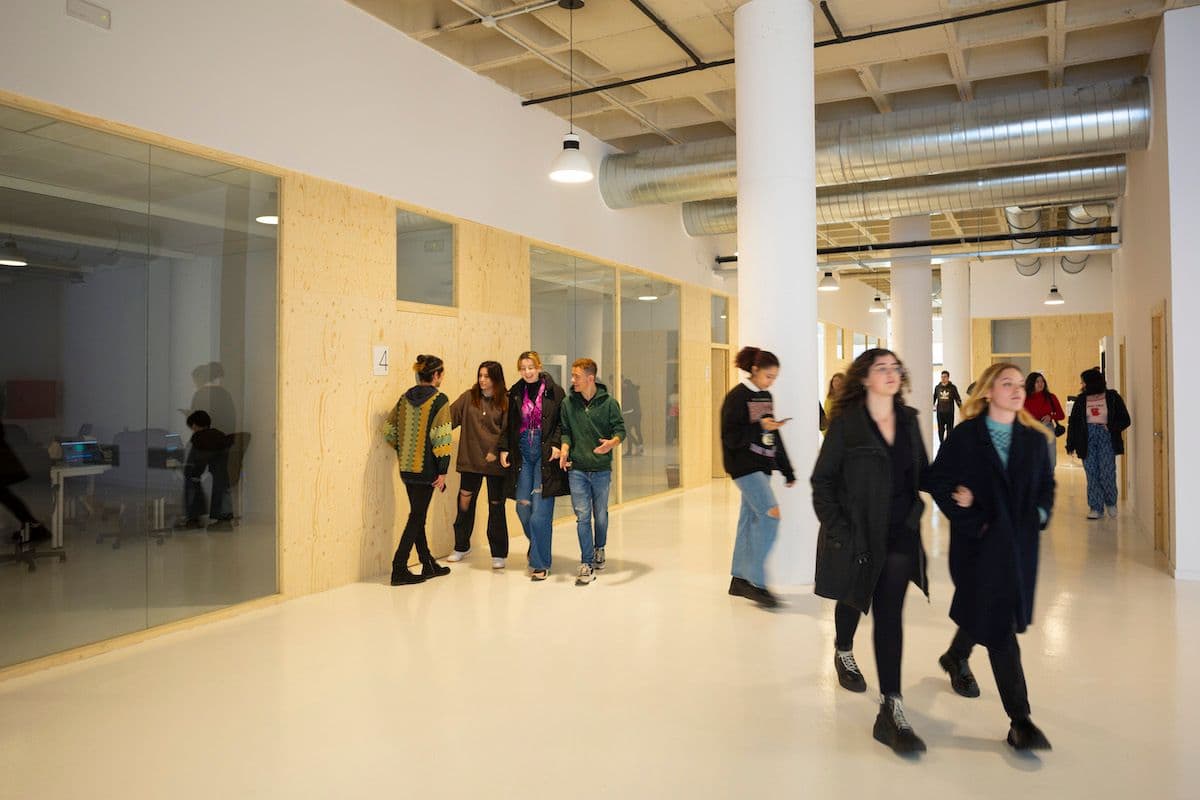
We had three main professors during our last year, and they all made a great job in communicating what was needed to improve our work and workflows to prepare ourselves for what’s expected in the industry.
Francesc, one of them, was particularly technical in his approaches, so it was him who taught us the best pipeline to work efficiently. For the more artistic approach we had the support from Ernest and Enrique; they helped us with developing a more pleasing composition.
At the end of the day, every project at [FX Animation] is creatively planned by you, so the instructors role is to guide you through your own vision to achieve what you creatively want.
On a crowds project we did at school, I decided to make a crowd of people with cloaks entering a building, so naturally I had to mix cloth simulation on top of the crowds and managing to simulate the 20+ characters with full on clothing on a laptop was a hard challenge. So, I had to get creative on the cache management, simulating only a couple at a time and then instancing across the shot, that way I had an incredible amount of detail on the animations while keeping it light enough to manage on my laptop.
Be sure to have a lot of passion! This is a degree where you must be willing to get in deep with learning. What you’re going to get from school is a base level to experiment and learn by yourself, you’re going to be watching a lot of tutorials, reading art books, following courses, and going through so so SO many forums to expand you artistic and technical knowledge.
I’m not saying you must leave all your life behind just to learn VFX, far from it, but during your student years, you’re going to have to put in the hours to improve. However if you like this little magical world, chances that you’re going to deep dive into it without even noticing.
There’s something about competitions that makes me want to give it all to stand out. We all want to create something cool and amaze other people with it.
Having a site like The Rookie Awards helps me to have a deadline and clear goal in order to try and strive to do my best artworks!
I’d say schoolwork and my own personal work are one of the same, since every project done on the school is a personal project you develop. I can learn new sides of VFX while still being able to do what I creatively resonate with. But of course, my personal projects are creatively fuelled by what I consume and enjoy, and technically possible thanks to what I learn doing school projects.
Everywhere, I like to think our own creative voice is a product of every piece of art we consume, a painting you saw at the museum, an obscure 60’s movie, an especially moody landscape you come across...inspiration can come from any media you consume or experience you live.
When I’m specifically looking for something, I like to watch videogame cinematics, concept art or anime because that’s what resonates with me the most. For implementation on my work I always like to mix in the input of my peers; everyone has a life worth of different experiences and creative tastes, so taking the parts of the feedback I like is always a good way to elevate the creative potential of my work.
Currently I’m working on a sort of complex CG project where a meteor hits an open field at night. I chose that to practice the creation of procedural assets, CFX, FX, realistic lookdev and to deepen my compositing knowledge.
I think is important to understand the whole CG pipeline, and personal projects that are tied only to you are a good way to challenge yourself into going further beyond and experimenting with more complexity.
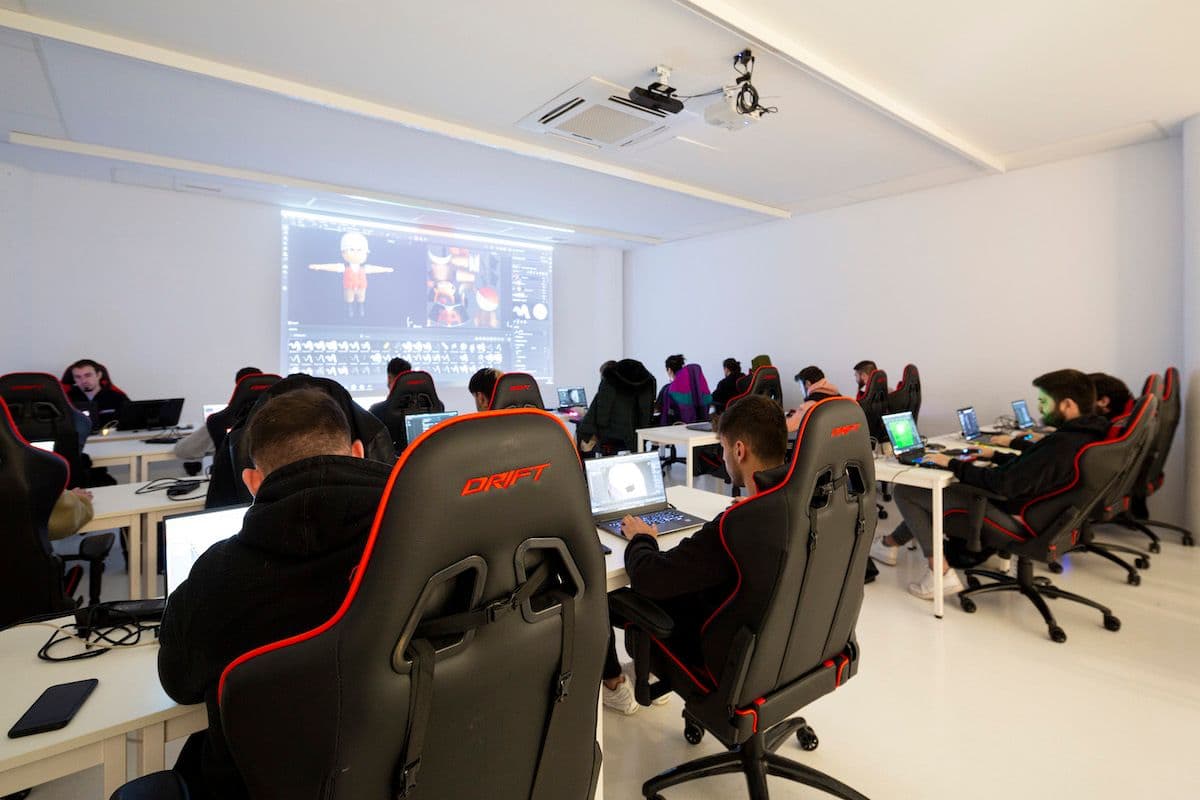
I’ve just graduated, but before that I had the expectation of travelling and working on FX for advertising or movies; videogame cinematics being my goal.
I guess that’s the expectation of most VFX students: make it into the industry. I’m truly grateful to be on the most accessible era of the industry and managed to get into the industry doing what I dreamed about, videogame cinematics!
The top factor for me would have to be the way subjects are taught, that’s the strong point of the school, you can learn standard FX workflow during the regular classes and get a strong base knowledge with those, but it’s with every monthly personal project that you really learn how to develop a project without the training wheels of only doing pre-planned projects.
That’s truly the way to learn in this industry: you have to do projects, you have to let your creativity run wild and then let it lead your technical knowledge of software and pipeline. That’s the thing that this school understands about learning so well and why I would recommend this school to an aspiring VFX artist.
Reach out to students that are either finishing their career or have recently graduated, education programs change fast in this industry, so having the input of someone who has experienced it firsthand is important to get to know the ins and outs of any institution.
Maybe you think it’s obvious, but never let marketing make the decision, always do your research about a school you’re going to invest so much time and money in.
Santiago Cabrera is 22 years old and originally hails from Paraguay. He is currently finishing his graduation project and working as a Jr. FX Artist. You can find Santiago on The Rookies, Instagram and LinkedIn.